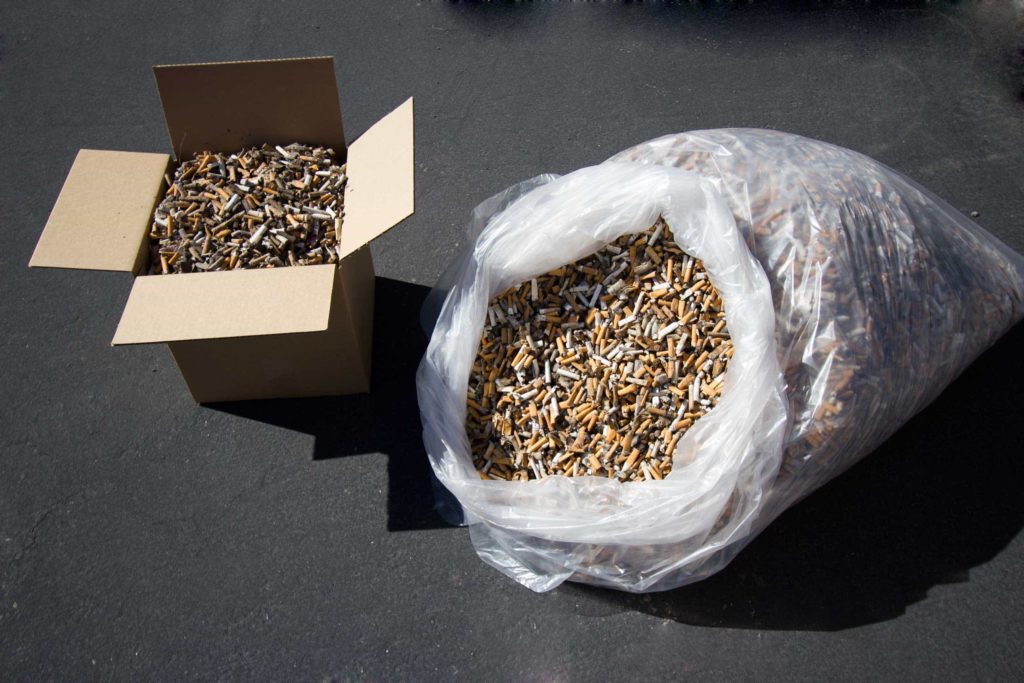Hubbub commissioned research, which was carried out by a market research consultancy Censuswide and surveyed 1,500 smokers.
The results revealed that over a third (36%) of respondents “mistakenly think cigarette butts contain cotton wool they are made from a type of plastic – cellulose acetate – which can release thousands of chemicals once smoked”.
The charity pointed out that while cigarette butts are the most littered item in the world and cause serious damage to the environment over a number of years, “they don’t get the same attention as other plastic litter which is arguably less harmful”.
The survey also showed that over a third (34%) of smokers believe it takes less than a year for a cigarette butt to decompose. However, the charity revealed that it doesn’t ever decompose and can take up to 10 years to start breaking down into microplastics.
Additionally, more than a quarter (28%) of those surveyed admitted to dropping their cigarette butts down the drain, leading directly to water ways and oceans.
Awareness
Hubbub said it last week (13 October) took over the streets surrounding Stratford Station by installing “eye-catching interventions” to raise awareness of their plastic content and cigarette litter. This included billboards, ballot bins, newspaper stands and “talking butts” to catch the attention of passers-by.
The charity also called on councils and industry to do more to raise awareness about what cigarette butts and filters are made from and help encourage smokers to dispose of their butts responsibly.
55% of the respondents said there are not enough cigarette bins at bus stops, the survey also showed. 51% said the same for taxi ranks, with 51% saying the same for outside supermarkets. Therefore, Hubbub reiterated that “the location of bins is key”.
Hotspots
The charity outlined that placing ashtrays in “hotspots” such as park benches, bus stops and road junctions can reduce cigarette litter by up to 90%. This is based on data from Ellipsis Earth, which tracks cigarette litter using mapping software. In an average town, this is said to add up to approximately 40,000 cigarettes a week captured and correctly disposed of.
Ellipsis Earth’s research also showed that lack of cigarette litter also helps reduce the littering of other items by up to 75%.
The survey also revealed that 32% of the surveyed smokers don’t realise it’s illegal to litter cigarettes. Cleaning up littered cigarette butts currently costs UK local authorities around £40 million per year.
Heather Poore, co-founder of Hubbub, said: “We were encouraged to see that 57% of smokers when told cigarettes contained plastic said they’d be more likely to look for an ashtray nearby and 50% say they are more likely to keep hold of their cigarette butts for longer.” Ms Poore then called on cigarette manufacturers, councils and landowners to help with raising awareness about the plastic content.
Recycling
The charity also launched a recycling on-the-go toolkit and funding for local authorities earlier this month (5 October).This comes following multiple trials across the UK, which tested a range of bright, colourful and eye-catching bins to make it as easy as possible for people to recycle. For access to the toolkit and more information on the funding, click here.












Subscribe for free